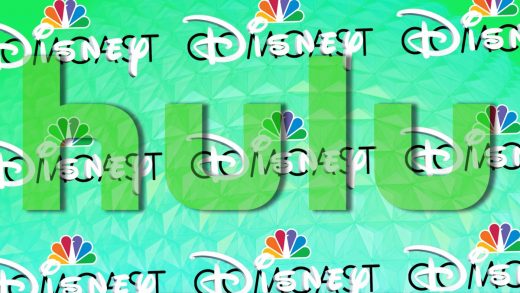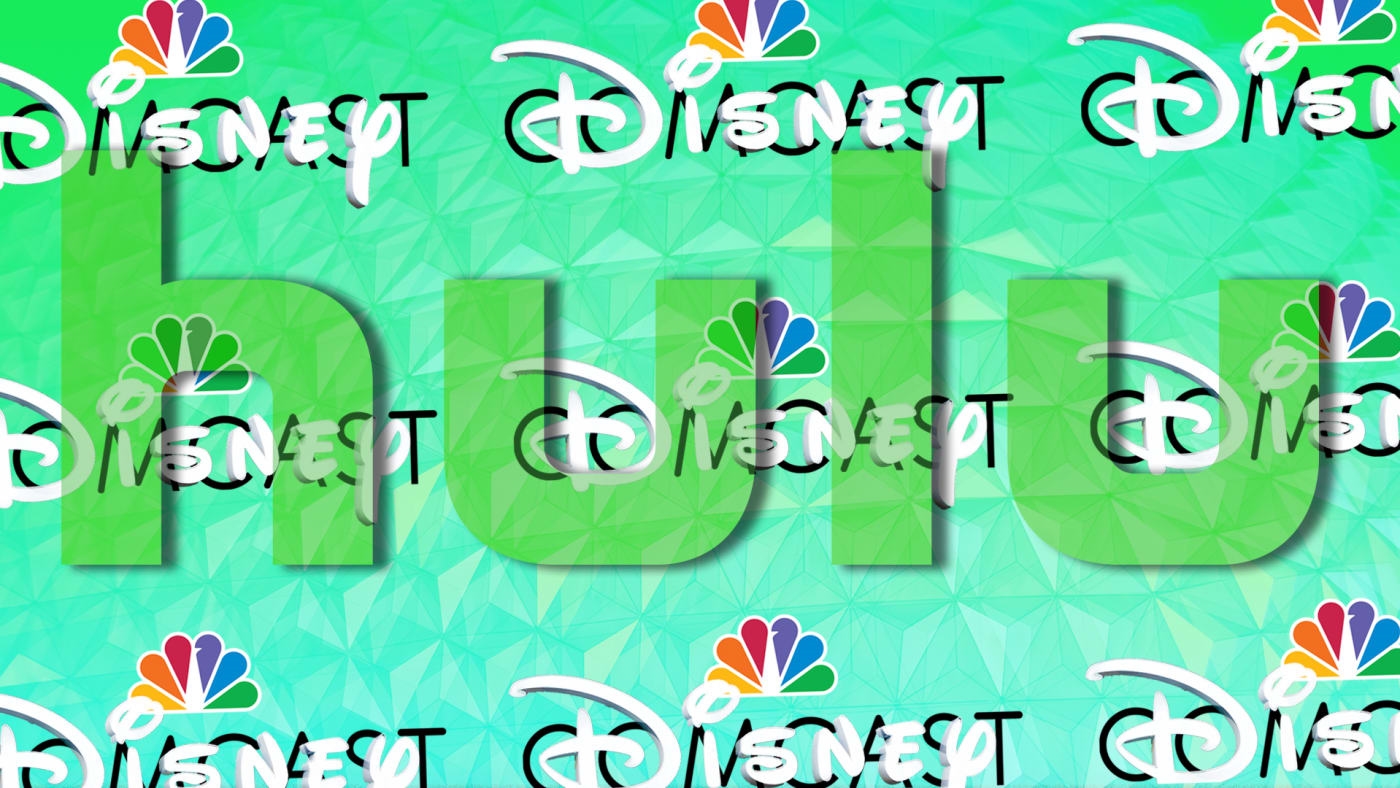Why Hulu matters so much in the Disney-Comcast fight over Fox
When Disney announced that it was acquiring 21st Century Fox for $52 billion back in December, it set off a wave of speculation about what it all meant. The biggest takeaway was that in the entertainment industry today content is, now more than ever, king, and that the only way for traditional media companies to compete with the likes of Netflix and Amazon is to bulk up on it. By absorbing most of Fox’s entertainment assets, Disney would be getting its hands on franchises like X-Men and Ice Age that it could distribute directly to consumers via its new streaming services. This fact was driven home even harder when Comcast then let its own interest in Fox be known—the cable and broadband giant is planning to make a $60 billion, all-cash, counter-bid for Fox in a few weeks.
But besides the obvious value of Fox’s TV shows and movies, owning the Murdoch empire provides access to other jewels. One of them is Hulu, the video streaming company that is jointly owned by Fox, Disney, Comcast and Time Warner. Whoever winds up with Fox will earn a controlling stake in Hulu, meaning that for the first time in its history, the company will have a clear leader that will be able to strategically position it to its advantage. Hulu is “a significant driver of any Fox deal,” says Peter Csathy, founder and chairman of Creatv Media. “I don’t think the Hulu piece is an asterisk. It’s a foundational rationale for a deal.”
Why that is takes a little bit of unpacking, given that Hulu has always been something of an enigma, or at least a company that has never been easily understood. Here’s why Hulu matters so much.
1. Wait, who owns Hulu and why is its management so complicated?
Hulu was formed in 2007 as a way for the Hollywood studios and networks to ward off piracy of their content, which was happening in a big way thanks to YouTube. Twentieth Century Fox and NBC (before Comcast acquired it in 2011) joined hands, along with private equity firm Providence Equity Partners, and formed the service, which streamed free episodes of network TV shows a couple days after they were broadcast. In 2009, Disney joined Hulu as a 30% partner, and in 2015 Time Warner took a smaller, 10% stake.
This joint leadership has always made the management of Hulu a complicated affair. The company’s corporate parents have differed on strategies over the years, with some pushing to sell Hulu at various times—there was once talk of an IPO—and each having its own ideas about things like windowing—i.e., the amount of time after a broadcast that a show should be available on Hulu. In the early days, there was also a power struggle between Hulu’s corporate parents and the techies who actually ran the company, which was led by CEO Jason Kilar, a wunderkind who hailed from Amazon. Kilar ultimately stepped down in 2013 after some much-publicized drama between him and the Hulu board. To calm the waters, Hulu replaced Kilar with one of their own, Fox executive Mike Hopkins. Things ran smoothly under Hopkins, though he departed last year to run Sony Pictures Television. Now Randy Freer, another Fox suit, runs the company. As we said: complicated.
2. If it’s such a mess, why are Disney and Comcast so interested?
Despite all of the internal agita, Hulu has emerged as the most substantial streaming contender behind Netflix and Amazon. It’s often referred to as the “number three” streaming company. Yes, Netflix and Amazon are legions ahead of Hulu in terms of subscribers—Hulu has 20 million U.S. subscribers (it’s only available domestically), compared to Netflix’s 117 million worldwide and Amazon’s 100 million worldwide (though it’s not clear how many Amazon Prime customers use the video service)—but everyone else in the category, such as SlingTV, DirecTV, and CBS All Access, have subscriber bases in the low single-digit millions.
Besides its scale, Hulu has done a good job establishing its brand and, thanks to Kilar, has a sleek, attractive user-experience that is second only to Netflix’s. Last year, Hulu completely revamped its UI making it even more user-friendly. It’s also stepped up its game on the original content front and finally has a must-see series, The Handmaid’s Tale, which became the first streaming series to score an Outstanding Drama Emmy. Last year, it launched a live TV bundle for $40 a month that has emerged as one of the best options in terms of price and available channels for people looking to cut the cord and still be able to watch live TV. Just last week, Freer announced that Live TV With Hulu has notched 800,000 subscribers in a little over a year; it’s taken competitors several to reach the million mark.
All of this means that Hulu offers its new owner a turnkey streaming service with a strong brand, a growing cord-cutter’s TV bundle, and a meaningful subscriber base.”Hulu is such an established player with its 20 million subscribers,” says Daniel Ives, chief strategy officer and head of technology research for GBH Insights. “It’s a huge shot in the arm” for either Disney or Comcast. Whichever company ends up controlling it will be able to hit the ground running and not have to spend months, if not years, getting a new streaming service off the ground.
3. How would Hulu serve Disney?
Right now, Disney is going all-in on digital. Chairman and CEO Bob Iger has said repeatedly that getting Disney’s digital streaming services up and running is the company’s biggest priority, as it plays a feverish game of catch-up to an entertainment world that is increasingly defined by direct relationships with consumers. To this end, earlier this year Disney launched ESPN Plus, its new sports app. Next, it’s launching a Disney entertainment app that will stream family-oriented content from Pixar, Disney Animation, and Disney Channel, as well as TV shows based on High School Musical and Star Wars.
If Disney controlled Hulu, it could use the service to package edgier fare from ABC, FX, Fox Searchlight, and 21st Century Fox—everything from The Simpsons to Modern Family to Atlanta—so as not to dilute the Disney brand on its own streaming platform.
“Hulu is the natural home for a broader offering that has more adult content,” says Csathy. Disney could also use Hulu to beta test products and strategies “that could be deployed on Disney’s own standalone services down the line,” says Ives, who points out that the Disney family app isn’t arriving until 2019 (which is eons away in digital time). Finally, having Hulu in its portfolio would give Disney a jump start on building out the front-end services of its app, which it’s having to do from scratch. The back-end is being handled by BAMTech, the powerhouse streaming company that powers the Major League Baseball app and that Disney owns a majority stake in.
4. How would Hulu serve Comcast?
In many ways, Comcast needs Hulu more than Disney does. First of all, Comcast, which is the nation’s largest home broadband network, is much farther behind in the streaming game, and would only be more so if Disney super-charges itself with Hulu. Comcast’s main foray into digital streaming was Watchable, a platform that launched in 2015 and was available to Comcast subscribers on set-top boxes, online, and via mobile devices. But after failing to gain traction with audiences, despite content from publishers like BuzzFeed and Refinery29, Comcast shut Watchable down last year. Comcast also has Xfinity Instant, an Amazon Fire-type experience available to Comcast users that lets them incorporate Netflix and YouTube into a single interface (Xfinity Stream makes it all mobile), but the service is considered overpriced and limited in scope. XI does give Comcast something to fall back on if it loses this bidding war. But with Hulu, Comcast would “with one signature on the check immediately become a major player in the U.S. OTT video market,” says Csathy.
Hulu would also broaden Comcast’s user base in the U.S., seeing as the cable operator, though giant, is only available in certain regions of the country. “It would give them a national distribution footprint and allow them to have subscribers in places where there’s no other way for them to get them,” says one digital executive. Finally, because the FCC is attempting to repeal net neutrality laws, Comcast could use its network to make Hulu function better or exempt it from data caps without running afoul of federal regulations.
5. What challenges face Hulu’s new leader?
Number one, Hulu bleeds cash. Last year, Hulu lost $920 million. Last year, its owners needed to invest $1 billion into it. Part of this is because Hulu has upped its spending on original content, to $2.5 billion in 2017, in an effort to remain competitive with Netflix ($8 billion) and Amazon ($5 billion). But an even bigger reason is the high transmission fees that Hulu is paying to media companies for access to its channels for its live TV bundle. As we reported last year, those companies want fees that are equal to, if not higher than, what they receive from pay-TV companies. At $40 a month, analysts have surmised that Hulu is losing money on every live TV subscriber. So whoever winds up controlling Hulu needs to figure out a path to profitability while holding on to the content that makes Hulu valuable.
Two, whoever loses out in this fight for Fox will be highly incentivized to make Hulu less valuable to whoever winds up winning it. If Disney prevails, what will keep Comcast from withholding TV shows–it owns NBC and all its affiliated cable channels, including Bravo, E!, USA, and Syfy–or driving up fees even further? Ditto for Disney should Comcast acquire Fox. Contracts are now in place to secure that content, but they’ll be up for renegotiation in a year or two, or about the time that either Disney or Comcast will likely be in control.
Finally, the biggest existential challenge for Hulu down the line is how does it close the gap between it and Netflix and Amazon? There are many millions of subscribers that separate it from those two and although Hulu has goosed its numbers in the last year thanks to shows like Handmaid’s Tale and the live TV bundle, it still has a ways to go. A new owner will need to be savvy about a growth strategy.
6. So what’s likely to happen?
All eyes are on the Justice Department’s antitrust suit against AT&T, which is attempting to close its $85 billion acquisition of Time Warner. A decision is expected on June 12th, and the feeling right now is that AT&T will win and the deal will go through. Once that happens, Comcast will almost certainly formalize its $60 billion all-cash bid for Fox. If Disney gets into a bidding war with Comcast, then Comcast’s bid could reportedly rise to close to $100 billion.
Disney, meanwhile, is preparing its own cash bid to counter Comcast’s, but Comcast doesn’t think Disney can match it, because if Disney adds more stock to the deal, Fox stock will go down, according to CNBC.
If however, AT&T loses, Comcast won’t bid.
Other dates that are being closely watched: On July 10, Fox shareholders are going to vote on the potential sale to Disney. That same day, Disney has also called a special meeting for shareholders to approve issuing equity in connection with the $52-billion stock purchase.
This has all been quite a journey for Hulu, which was derided as Clown Co. when it started and now it’s worthy of its own drama . . . on Hulu.
(24)



